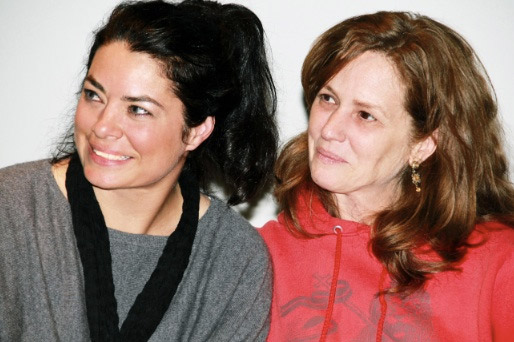Are you crazy? You turned down a distribution deal? Um no. And yes.
It seems crazy for one who believes in the old model of distribution, and more power to you if you have a feature and a company offers you a true distribution deal with all the money you need to pay back your investors, support the film throughout its worldwide release with marketing and publicity, and even gives you a sustainable living so you can focus on making your next film. Kudos! I admire you for making a film that others feel they can sell and make money. My distributors must have felt the same.
But, we’re living in a time where, for shorts, there is no true distribution modela time when the landscape changes like lightning and PirateBay gets international downloaders because some distributors dont have deals in their countries, so your film is being seen for free anyway! It’s a time when the internet, Facebook, and inboxes are overflowing with contenta deluge that makes it difficult for even the most diligent to have the time to sift thru and determine what is good from what is crap (and the majority of it is crap.) It’s a time when even brilliant filmmakers and musicians are giving their work away for free in exchange for tips, donations, and more importantly, loyal fans. It’s a time when the market is getting so used to free content that to pay .99 on iTunes turns audiences away. Its probably more subconscious than conscious with them, but its the current trend and its growing.
For me to make a short film was never actually about making money, but rather it was about telling a strong story and hopefully using it as a calling card for an opportunity to direct a feature. Even that has changed (which is another story unto itself). In this climate, who is going to take the time to see my film? Even agents cant consume anywhere close to the percentage of content they are constantly hit with in a day, a week, a month. So, even a critically acclaimed short film in Oscar consideration starring an Academy Award winning actress has a hard time finding attention in this rapidly changing, oversaturated, consumer society.
So, what does this have to do with distribution? Well, to give away part ownership not knowing who has a chance to view this powerful story began to not make sense to me. To not be on the forefront of the filmmaker/audience exchange didnt feel right. On another note, when I was first offered the deal, the deliverables were another expense that, as a filmmaker struggling to make festival fees and rent, I couldnt get ahead fast enough financially to ever pull everything together. When I finally was capable, the deliverables changed and the cost was not so prohibitive, but still, I began to see that the filmmakers who were getting their voices heard were giving their films away on Vimeo, people where talking about them and they where moving on to their next projects. On Vimeo, anyone at anytime can just be sent a link. These filmmakers were building their fan baseby giving away their shorts they were investing in their future audience. I like that model. This strategy is not new news to any indie filmmaker or indie musician. But, how do you build that fan base? Keeping them interested and following you is a full time job unless you have a PMD in your arsenal who is making sure your “brand” is growing.
Dont get me wrongI still believe as an architect designs, delivers, and receives a paycheck, so should we. But, the territory is relentless in its morphing nature. Perhaps one day we will figure out a way for indie filmmakers to be paid a living wage from the work they do. Until then, what does this have to do with turning down a distribution deal? Determine what you want: money or an audience. Build it and they will come. Give it away and they will come.
The guys over a Short of the Week really opened my eyes to the possibilities, and of course Ive followed Ted Hope and Peter Broderick because without their voices in these ever changing times, I would be lost. Things move quickly in this game and the rules we had even two years ago have changed. To be truly independent you must engage your audience with different distribution strategies. I wanted first hand experience with my audience. I want as many people as possible to view this film. I want a conversation. The subject matter is powerful, moving, even controversial to some, and needs to be made available as a part of the discussion. If I had given it up for distribution, I would have put something between myself and the audience and with this film I want to participate with you. I look forward to that. Short of the Week
Short of the Week

